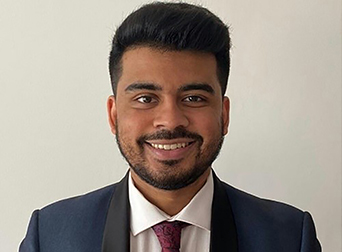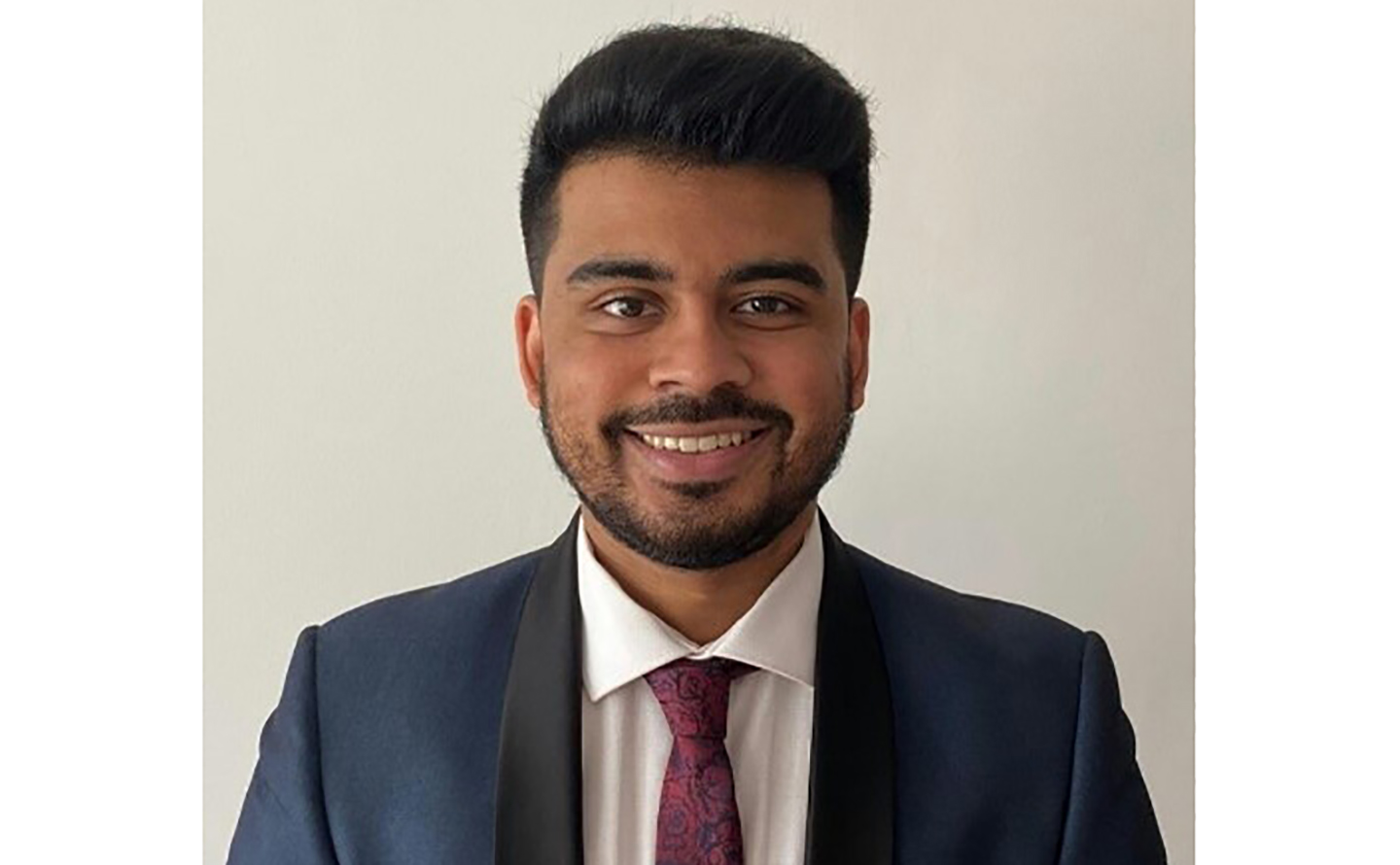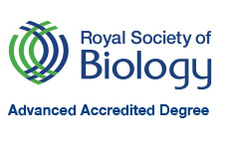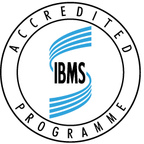BSc (Hons) Biomedical Science
Key information
-
Typical offer:
Entry requirements -
Fees: See below
Full details -
UCAS code: B990
-
Institute code: H36
-
Study abroad option
-
Work placement option
Find out more
Why choose this course?
- 94% satisfaction for organisation and management (NSS, 2024, based on the average of Q17-18)
- 1st in the East of England for medical technology and bioengineering (CUG, 2025)
- 9th in the UK for health science (Daily Mail University Guide, 2025)
Ever wondered how diseases occur? How genetic disorders lead to abnormalities? Or how microbes evade our immune system? As a biomedical science undergraduate, you will study the causes, diagnoses, and treatments of diseases like cancer, blood disorders, and infectious disease.
Be inspired to become a biomedical scientist contributing to patient diagnosis. In the UK, the term 'biomedical scientist' is a protected title used by professionals working within the pathology department of a hospital. Our course is accredited by the professional body; the Institute of Biomedical Science (IBMS). Studying our degree is the first step to becoming a registered biomedical scientist. There is always something new to discover in this innovative field of science.
Get hands on experience in our modern science building with great teaching and research laboratories. You’ll be able to use well equipped laboratories spread over five storeys of innovative facilities. You will work alongside researchers, academics, industry specialists and other students.
Our flexible programme introduces you to a range of bioscience topics in your first year before you begin to specialise for your remaining biomedical science studies. If your interests change in the first year, then it’s easy to swap to another bioscience pathway, although you will need to be good at chemistry to switch to our biochemistry degree. This is why we give you the chance to experience a range of modules before committing to the biomedical pathway. We believe in flexibility. We will guide you to find your passion to study what you really love.
While you explore various new and exciting areas in this degree, we will be with you all the way. You’ll get a personal tutor, who’ll support you in gaining subject-specific skills in scientific writing, data interpretation, and communication. Take advantage of peer support too in group workshops.
You’ll be at the forefront of exploring exciting new areas in the biomedical field. Our course is designed to provide you with a solid-stepping stone for your scientific career. You may choose to help save lives as a registered Biomedical Scientist. Research in pharmaceutical companies or academic environments offer exciting opportunities for our graduates. You may decide to take a new direction such as business or teaching for example. You’ll have a wide range of options with your biomedical science degree. The transferrable skills that you gain during your degree can lead to exciting careers and are highly valued by employers.
Find out more about our teaching staff across biosciences
Get in touch
Follow us on Twitter: @UH_AskBIO
Email: askbio@herts.ac.uk
What's the course about?
A big focus is how scientists use laboratory tests to support patient diagnosis. You will learn about the structure and function of tissues and organs in normal and disease states. You’ll link your expert knowledge of biology and chemistry to understand biochemical pathways and their influence in disease development. You’ll explore haematology, microbiology and blood transfusion techniques that form the basis of modern medical diagnostics. In other words, you will literally learn how to save lives.
You have 20 hours of contact time, with lectures and workshops taking up about 6-10 hours per week.
In your first year you’ll gain a solid foundation in topics such as genetics, how drugs work inside our bodies and how viruses and fungi are formed. Your first year is shared with other degrees in biosciences. You may find you enjoy subjects explored further on the Molecular Biology pathway for example. Our shared first year gives you the opportunity to consider your bioscience pathway before committing. We believe in flexibility.
In your second year, you’ll specialise even more. You will study areas of pathology; biochemistry, blood transfusion, cytology, genetics, haematology, histopathology, immunology, and microbiology. Patient case studies allow you to apply theory from each area. You'll analyse the different methods of research on diseases and treatment options. Building your skills as a researcher is developed through our Bioscience Research Methods module.
Work placement/study abroad option: Between your second and final year, you’ll have the possibility to study abroad or do a work placement for up to a year. Not only will this give you an amazing experience to talk about but will also give your CV a boost. If you’d rather go straight to your final year, that’s absolutely fine too.
In your final year, you’ll find that you have grown to love certain topics and now you have the chance to delve further. The final year is the chance to bring knowledge of subjects studied together. The final year project shows how you can answer a research question independently working with a member of our subject specialist staff.
Your main campus is College Lane
This is where the creative arts, science and health-related subjects are based. This means you’ll share the campus with future nurses, scientists, artists and more. You can use the common rooms to relax with friends, work out in the 24-hour gym or have a drink in our on-campus pub or cafes. We also have restaurants for you to eat in or grab something on the go. Our Learning Resources Centres are open 24/7, which means you can study whenever suits you best. Want to pop over to the other campus? You can take the free shuttle bus or walk there in just 15 minutes.
What will I study?
Degree programmes are structured into levels, 4, 5 and 6. These correspond to your first, second and third/final year of study. Below you can see what modules you’ll be studying in each.
Check out our student blogs

Alumni Stories
Jamee Ahmed
Meet Jamee, a regulatory scientist who enjoys volunteering in his spare time.
Read more stories BSc (Hons) Biomedical Science| Current job role | Regulatory Affairs Manager at Amgen |
|---|---|
| Year of graduation | 2019 |
| Course of study | BSc (Hons) Biomedical Science with Placement |
 Jamee-Ahmed
Jamee-Ahmed
A Career in Biomedical Science
Jamee is a Regulatory Affairs Manager, working in Chemistry, Manufacturing and Controls (CMC) for the biopharmaceutical company Amgen. Jamee says, ‘I am involved in providing product support to the CMC global function, which is responsible for regulatory submissions across phases of product development from clinical to lifecycle.’
‘As a student I didn’t see myself working in a laboratory environment and I found the area of regulatory affairs an interesting yet a crucial part of the pharmaceutical and biotechnology industry.’
Jamee worked in other parts of the pharmaceutical and biotech industry and pursued further study, before embarking on his current career path.
‘After my second year of university, I completed a summer internship within the Research & Development (R&D) department at Bio Products Laboratory. Working as a Bioprocessing Scientist, I was involved in providing support for R&D projects, specifically associated with safety, development, and analysis of new and improved products.’
‘After graduating from Herts, I returned to Ascot Laboratories, the company where I completed my industrial placement year. I took the role of Quality Assurance Officer which involved in various tasks, including training the new placement students, supervising pharmaceutical production, and performing checks before batch release.’
‘I later decided to undertake further study and I did an MSc in Biopharmaceuticals at King’s College London. This postgraduate degree entailed learning about a range of different topics from drug delivery, formulation and pharmaceutical analysis, with a specialised focus on the discovery and development of biopharmaceuticals. My dissertation was on the topic of the availability of substandard and falsified medicines online, which I have published my findings in the Journal of Medicine Access. After completing my masters I began my career in regulatory affairs at Amgen.
Graduation day
Jamee will always remember his Herts graduation day.
‘I have been fortunate to have many good memories and experiences during my time as a Herts student, however I think my favourite memory has to be graduation. It was so nice seeing and celebrating with my friends, family and teaching staff. The day went by pretty fast, but I was lucky to have a quite a few pictures and videos from the day which I can look back at.’
Volunteering as an Alumni Ambassador
As an Alumni Ambassador at Herts Jamee delivers talks to Bioscience Research students about his career journey and gave his industry insights.
‘My involvement in these events is a great way for me to help the next generation of Herts students. As a student at university, I wanted to get an insight into different career options, so now that I have graduated and pursued my desired career, I’m happy to share my knowledge and experience, highlighting what a career in regulatory entails and its importance in the industry.’
‘I like to volunteer and offer my knowledge and skills to support a range of organisations, initiatives and causes that I am passion about. I believe this allows me to make a positive difference and help others.’



